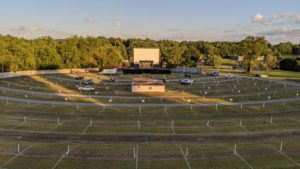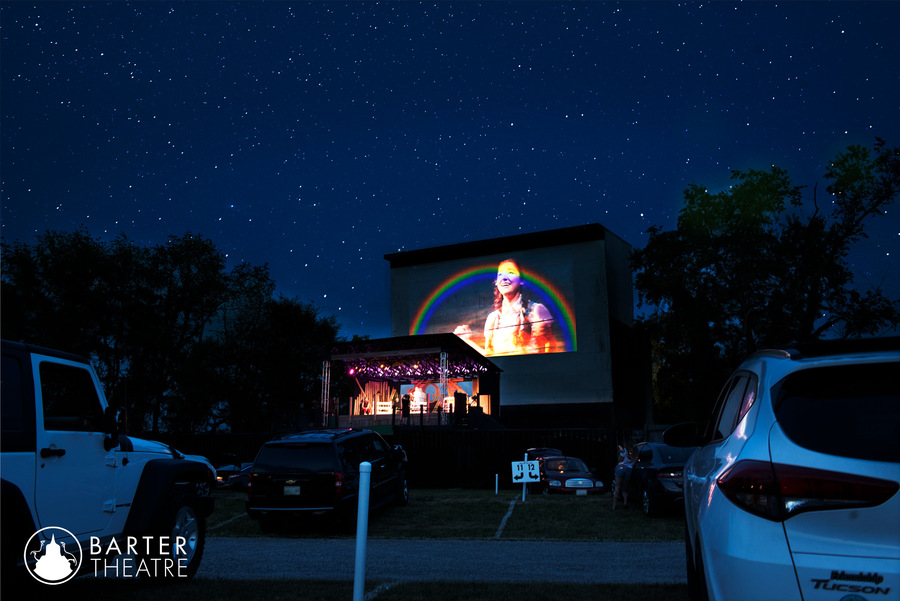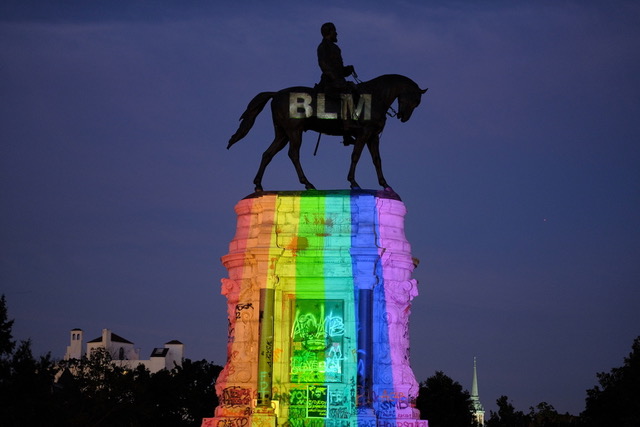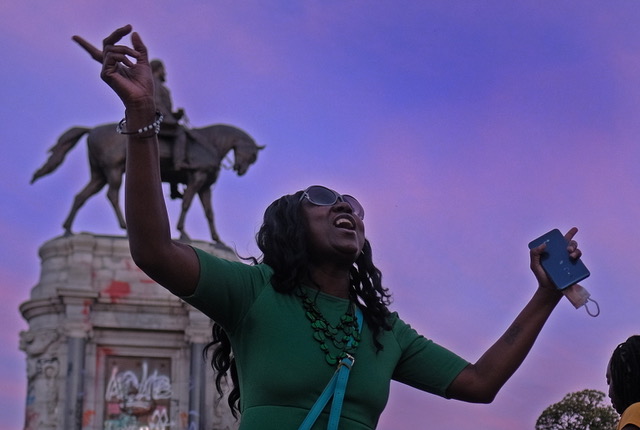Theatre artists are adaptable. We think on our feet and solve problems creatively. But rarely have we confronted challenges like the ones we face now. Lives depend on avoiding congregating for events such as performances, though the survival of our beloved cultural institutions has traditionally depended on packing houses when possible. Despite these health dangers, passionate citizens seeking justice for all are finding ways to gather to protest embedded inequalities in our policing and justice systems, with many artists moved to make work reflecting the resurgence of the Black Lives Matter movement.
If theatres are to survive this pandemic, we artists and administrators must reinvent ourselves by doing what we purportedly do best: maximizing our creativity. We must find and create opportunities for greater strength by adjusting many of our foundational ideas about live theatre. As we all struggle to find a new balance on this shifting ground, two Virginia theatre companies are quickly adapting to current times and inventing creative solutions, while drawing on existing relationships and new partnerships to continue work in the COVID-19 era.
In the rolling Appalachian hills of southwestern Virginia is the 87-year-old Barter Theatre, a regional stalwart. While producing artistic director Katy Brown had worked there for 23 years in various capacities, she accepted the leadership position only five months before theatres closed due to the pandemic. Luckily, Brown felt the organization was uniquely positioned to survive challenges.
“Barter was founded during the Great Depression,” Brown explained. “This theatre began and thrived in some of the most difficult times this country has ever known, and that creativity is in this institution’s bones.”
Brown described how, after realizing their indoor spaces were inadequate for COVID-safe producing, she drove around the rural area surrounding Barter, brainstorming about possibilities for performing outdoors. She kept coming back to the Moonlite Drive-In.
Built in 1949, the Moonlite had for decades been a well-loved drive-in movie theatre a few miles down the road from Barter’s Abingdon home. Though the Moonlite had fallen into disrepair, Brown recognized that if they could renovate the space, Barter performances at the drive-in had the potential for success.

Two local businesses became “patron saints” of the renovation. Local grocery chain Food City leased the property for Barter, and construction company JA Street & Associates poured footers, provided the base for the stage, and renovated the box office. Brown said they also received valuable help from staff and volunteers who scraped, painted, and built the stage, refurbished the marquee, and tended the 13-acre grounds.
“The venue is transformed,” Brown said. “Patrons drive in to a touchless check-in, go directly to their assigned double-wide parking spot on the clean grounds, tune into the stage from their car stereo, and watch the actors on the 15-foot-high stage, with close-ups simulcast to the Moonlite’s big screen directly above the stage.”
Brown adjusted the season to include well-known, family-friendly musicals that would appeal to quarantine-weary households. Actors’ Equity has not yet given permission to Virginia theatres to use union members, so Barter at the Moonlite currently features the non-Equity Barter Player company, which is accustomed to creating theatre for young audiences. Barter at the Moonlite is producing The Wizard of Oz (young performers’ edition), Mary Poppins Jr., and Disney’s Beauty and the Beast Jr., with the lack of an intermission intended to prevent risky audience mingling. The Barter Players signed contracts with safety guidelines written by a medical advisory board and also form a “quaran-team,” living together in a quarantined bubble, with the goal of making onstage proximity safer.
Regarding performing for people in cars, Barter Player Zoë Velling reports that the crucial exchange of energy between performers and audience still applies, but in a different way.
“At the Moonlite you have car lights flashing and horns honking and a smattering of cheers,” Velling said. “With a bit of mental translating, the connection with the audience feels just as palpable as an indoor, close-proximity performance. Plus, you get the added bonus of the stars and the fireflies.”
According to Brown, the idea has bred success and cultivated new audiences who had never been to Barter, or had not attended for years.
“Over 6,000 people saw our first show,” Brown said, “and we had so many people tell us that it was the first thing that had made them feel normal in months.”
In addition to the COVID-19 crisis, racism has long been a disease in the American body politic, but it has too often been left unaddressed by those in power at many theatres. Through a new branch of an established program, the Cadence Theatre Company of Richmond is addressing the plagues of COVID-19 and racism through their Sitelines BLM Project.
Cadence launched the initial Sitelines project in 2015 as part of its mission to bring challenging theatrical experiences to their community. By doing site-specific, original performances, they enabled audiences to attend theatre that deepened understanding of city spaces. The project is now expanding, and Cadence is asking artists to create screenplays and filmed plays that will be made in a COVID-safe manner and that are connected to places in Richmond that carry significant meaning for the region’s history around race and racism. (The submission period for project ideas continues through Sept. 14.)
Among the environments Cadence invites artists to explore are the Robert E. Lee monument, an area protesters renamed “Reclamation Square” at City Hall, and Richmond’s first municipal cemetery, the African Burial Ground. With this project, which will bring audiences together virtually, Cadence avoids having groups of people congregate to view theatre, while simultaneously spotlighting the new “seeing places” of Richmond that have come into sharper focus and importance because of the dual pandemics of systemic prejudice and COVID-19.
Sitelines BLM is the brainchild of director, dramaturg, and literary critic Omiyẹmi (Artisia) Green, who devised the project to provide an artistic platform to highlight areas in Richmond that are being reshaped by the Black Lives Matter movement. According to Green, the program is her contribution to the efforts of the Cadence board of directors.
“While the project is a natural outgrowth of key pillars in my teaching and scholarship—Africana Studies, community studies, and theatre—it was the gathering of minds and introspection of the Board that inspired me to bring all of these areas together,” she said.
Cadence is producing the project in collaboration with many other local arts organizations, including the William & Mary Program in Africana Studies, the University of Richmond, Free Theatre & Dance, Virginia Commonwealth University Arts, and Virginia Repertory Theatre. Green points out that while alliances such as these are often mutually beneficial, she keeps in mind the history of tokenism at some arts groups.
“Given the current pandemic, it is exceptionally critical that organizations share resources and find other ways to help each other,” Green said. “Having said this, I am also aware that care in our collaboration is important given the tenor of this project. I know the sensitivities around predominantly white theatre producing organizations doing insincere and strategic ‘diversity work’ for monetary gain.”
One partnership, with Oakwood Arts, is proving particularly fortuitous. Oakwood trains young people to develop workforce readiness skills in digital technology, and Green points out these are COVID-crucial skills. “Due to the surge of virtual engagement caused by the pandemic,” she says, “having expertise in digital technology will become increasingly important.” This alliance is giving youth skills that are immediately applicable in the current job market.
Cadence’s new project is strategic, Green explains. It responds to the recent wave in the ongoing struggle for liberation among oppressed peoples. But she also stresses that this artistic response is substantive rather than superficial.
“Sitelines BLM is new and other community partnerships are still forming, but this moral compass is guiding me through the developmental process,” said Green. “I am committed to using my privilege, labor, and any platform available to me to advocate for increased opportunities, resources, and disparity reductions for the most vulnerable, marginalized, and underserved.”’
Karen Sabo is the co-founder and artistic producer of In/Visible Theatre in Boone, N.C., and is an MFA directing candidate at University of North Carolina at Greensboro.




